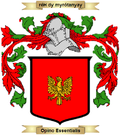Myrotanian Act 7
Act 7 - Dates and Holidays was first passed on 11 May 2013 and was most recently revised on 8 August 2014.
Act 7
1. Dates are written using the Gregorian calendar in the format of dd/mm/yyyy and, in full are written, as dd month yyyy
2. No-one is to work within the Empire on the 3rd March as this is “Myrotania Day”. It is historically the day that Myrotania declared its status as a micronation and an Empire.
3. Also, no-one is to work on the 8 Holy Days of Obligation days of the Catholic Church (according to England & Wales), these are:
a. The Epiphany of the LORD (6 January)
b. Easter Sunday: The Resurrection of the LORD
c. The Ascension of the LORD
d. The Most Holy Body & Blood of Christ (Corpus Christi)
e. The Solemnity of Saints Peter and Paul (29 June)
f. The Assumption of the Blessed Virgin Mary (15 August)
g. The Solemnity of All Saints (1 November)
h. The Feast of the Nativity of Our Lord and Saviour Jesus Christ (25 December)
4. Other days on which no citizen of the Empire is to work (also, on these days, all schools within the Empire are to be closed) are:
a. Feast Day of St. Thomas Aquinas (28 January)
b. Vernal Equinox (20 March)
c. Good Friday
d. Easter Monday
e. Feast Day of St. Francis of Assisi (4 October)
f. St Stephan’s Day (26 December)
g. The incumbent Emperor’s birthday
h. Every Sunday
5. Schools within Myrotania are to structure their term timetables around these holidays.
 Empire of Myrotania |
Government
The Law of Myrotania • Monarchy • Foreign relations
Thomas I • History • Religion • Language • Alphabet • Politics  |
|---|